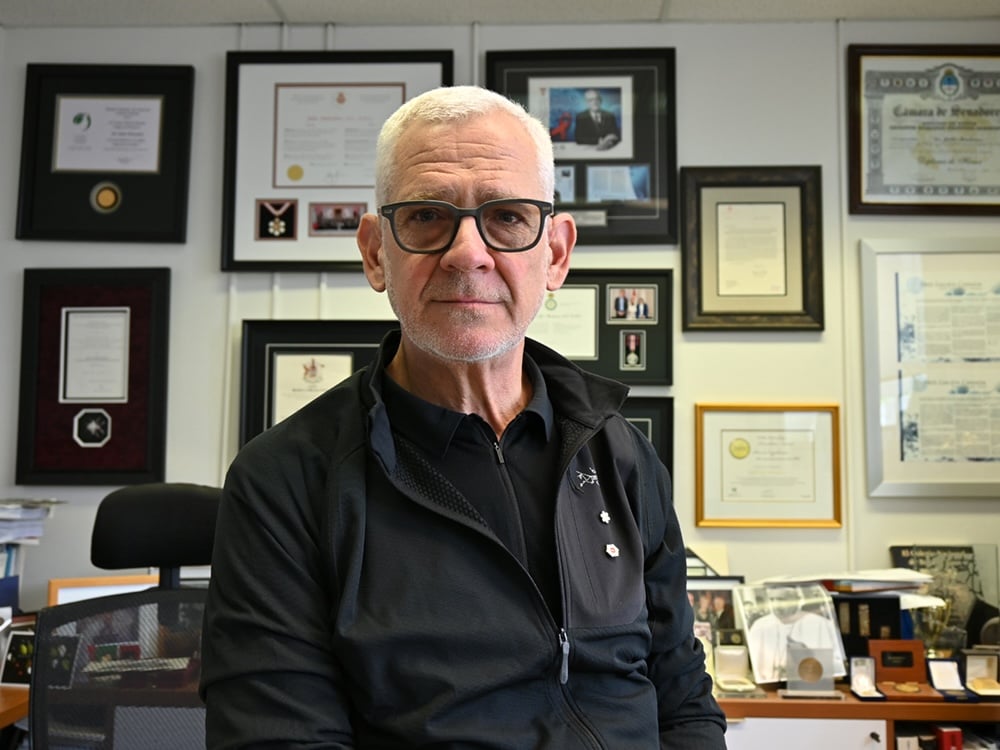Health
Canada Can Lead Global HIV Efforts as U.S. Reduces Commitment

The United States has significantly scaled back its participation in the global fight against HIV/AIDS, creating an opportunity for Canada to take a leadership role. This shift comes at a critical time, as experts emphasize the need for robust intervention strategies to combat the epidemic. A pioneering researcher from British Columbia argues that the province’s successful approach could serve as a model for the rest of the world.
British Columbia has long been recognized for its innovative strategies in HIV prevention and treatment. The province’s implementation of the “Treatment as Prevention” model has proven effective in reducing new infections dramatically. According to Dr. Julio Montaner, a leading figure in HIV research, this method emphasizes the importance of antiretroviral therapy in preventing transmission. “When people living with HIV maintain an undetectable viral load, the risk of transmission is effectively zero,” he stated.
As the United States withdraws from its previous commitments, Canada can leverage its expertise and resources to develop comprehensive programs aimed at curbing the spread of HIV. The World Health Organization (WHO) has indicated that global efforts need to be revitalized, particularly as new infections are still prevalent in many regions. In 2022, there were approximately 1.5 million new HIV infections worldwide, highlighting the urgency of sustained action.
Canada’s approach, particularly in British Columbia, has shown significant results. The province boasts one of the lowest rates of new HIV diagnoses in Canada, attributed to its proactive public health policies and community engagement strategies. These initiatives not only focus on medical treatment but also address the social determinants of health that contribute to the epidemic, such as stigma and access to care.
The Canadian government has expressed a commitment to maintaining its support for global health initiatives, including the fight against HIV/AIDS. With the announcement of the U.S. scaling back, there is a pressing need for Canada to fill the void and ensure that progress is not lost. The Canadian federal government has pledged to allocate $1 billion over the next five years towards international health initiatives, which could play a crucial role in sustaining global efforts against HIV.
The potential for Canada to lead in this area is further underscored by the collaborative spirit of its provinces and territories. Dr. Montaner suggests that other regions could adopt British Columbia’s model effectively. “We need a unified national strategy that recognizes the importance of local adaptations,” he remarked. This approach could empower communities across Canada to take ownership of their health outcomes while contributing to global efforts.
In addition to governmental support, non-governmental organizations and community-based groups play a vital role in the fight against HIV. Many of these organizations work directly with marginalized populations who are at higher risk of infection. By providing targeted outreach and education, they can help reduce the stigma associated with HIV and encourage testing and treatment.
The landscape of global health is rapidly changing, and with it comes both challenges and opportunities. Canada stands at a crossroads where it can not only address domestic HIV challenges but also extend its influence internationally. By embracing evidence-based strategies and fostering collaboration, Canada can make significant strides in the global fight against HIV.
As the world watches the response to the U.S. withdrawal, there is hope that Canada will emerge as a beacon of innovation and compassion in public health. The lessons learned from British Columbia’s HIV strategies could inspire countries worldwide to adopt similar frameworks, ultimately saving countless lives. The time for action is now, and the responsibility to lead has never been more critical.
-

 World3 months ago
World3 months agoScientists Unearth Ancient Antarctic Ice to Unlock Climate Secrets
-

 Entertainment3 months ago
Entertainment3 months agoTrump and McCormick to Announce $70 Billion Energy Investments
-

 Lifestyle3 months ago
Lifestyle3 months agoTransLink Launches Food Truck Program to Boost Revenue in Vancouver
-

 Science3 months ago
Science3 months agoFour Astronauts Return to Earth After International Space Station Mission
-

 Technology2 months ago
Technology2 months agoApple Notes Enhances Functionality with Markdown Support in macOS 26
-

 Top Stories1 week ago
Top Stories1 week agoUrgent Update: Fatal Crash on Highway 99 Claims Life of Pitt Meadows Man
-

 Sports3 months ago
Sports3 months agoSearch Underway for Missing Hunter Amid Hokkaido Bear Emergency
-

 Politics2 months ago
Politics2 months agoUkrainian Tennis Star Elina Svitolina Faces Death Threats Online
-

 Technology3 months ago
Technology3 months agoFrosthaven Launches Early Access on July 31, 2025
-

 Politics3 months ago
Politics3 months agoCarney Engages First Nations Leaders at Development Law Summit
-

 Entertainment3 months ago
Entertainment3 months agoCalgary Theatre Troupe Revives Magic at Winnipeg Fringe Festival
-

 Politics1 week ago
Politics1 week agoShutdown Reflects Democratic Struggles Amid Economic Concerns


















